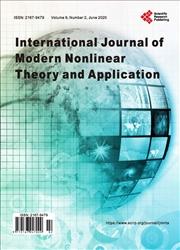Time-Frequency and Nonlinear Analysis of Tidal Data Observed on the Kuroshio Path
引用次数: 2
Abstract
The tidal data of Kushimoto and Uragami on flow path of Kuroshio from 2004 to 2005 are investigated and discussed by time-frequency methods and nonlinear methods in this paper. These analyzing methods based on mathematical science show us new findings about the tidal motion observed on Kuroshio flow path. On the time-frequency analysis, 12 hours component and 24 hours component swing during the period of 350 hours and 320 hours respectively. However, any remarkable differences or changes depending on Kuroshio flow path weren’t seen on the result of time-frequency analysis. On the nonlinear analysis, a periodical structure has seen on the mutual information of tidal difference data, while Kuroshio flow is stable. In addition, the mutual information showed a characteristic of randomness and irregularity, while Kuroshio flow is unstable. The important results brought us a new finding such as classification of tidal motion regardless of the flow path of Kuroshio.黑潮路径潮汐观测资料的时频及非线性分析
本文采用时频法和非线性方法对2004 ~ 2005年库本和浦上在黑潮流道上的潮汐资料进行了研究和讨论。这些基于数学科学的分析方法,使我们对黑潮流道上观测到的潮汐运动有了新的认识。在时频分析中,在350 h和320 h期间,12 h分量和24 h分量分别发生摆动。但在时频分析结果中,并没有发现黑潮流路径的显著差异或变化。非线性分析表明,潮差资料互信息呈周期性结构,黑潮流是稳定的。相互信息具有随机性和不规则性,黑潮流不稳定。这些重要的结果给我们带来了一个新的发现,如潮汐运动的分类,而不考虑黑潮的流动路径。
本文章由计算机程序翻译,如有差异,请以英文原文为准。
求助全文
约1分钟内获得全文
求助全文

 求助内容:
求助内容: 应助结果提醒方式:
应助结果提醒方式:


